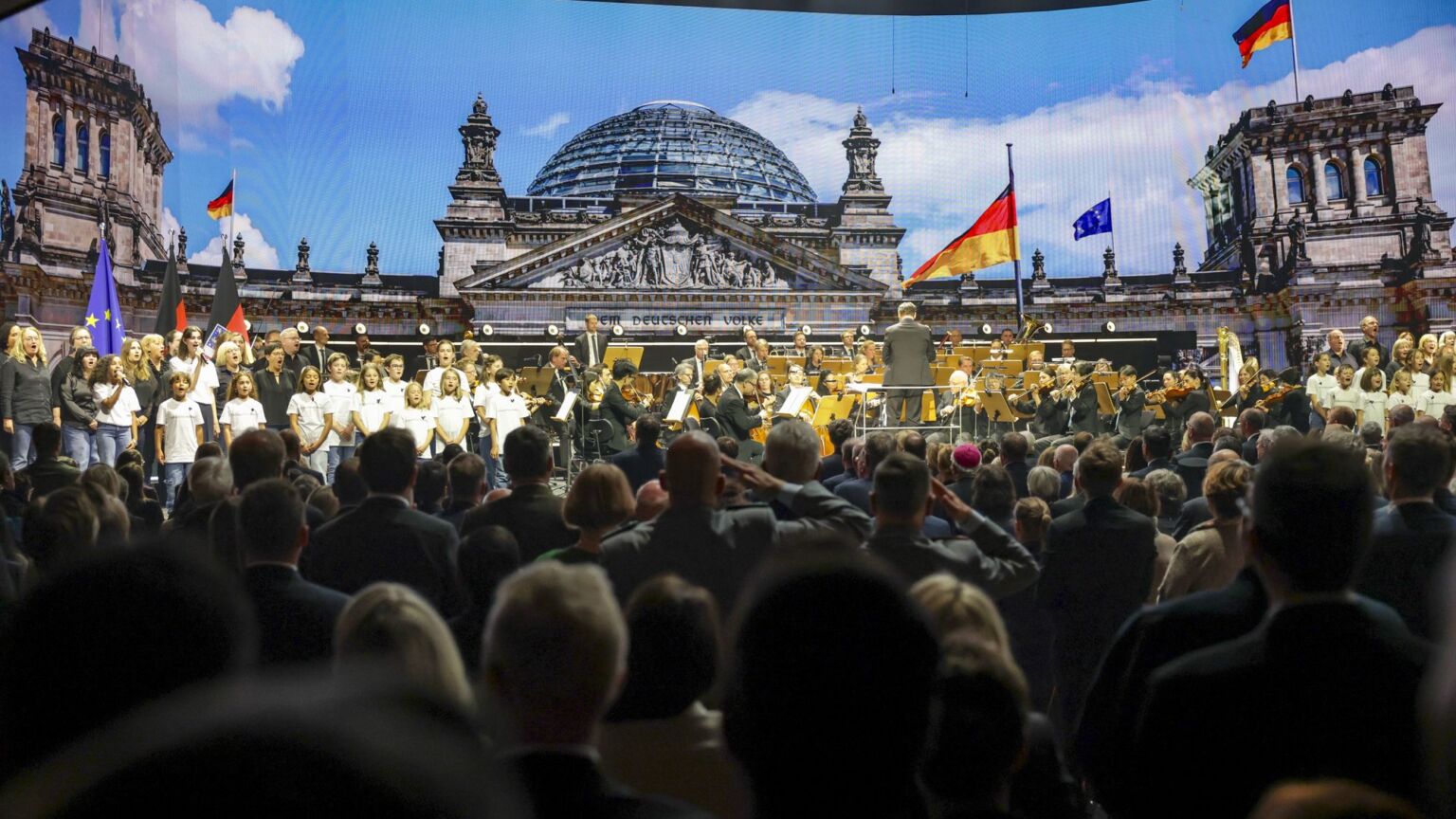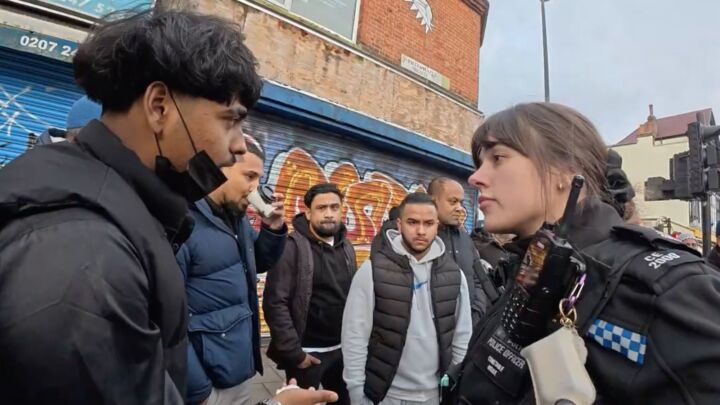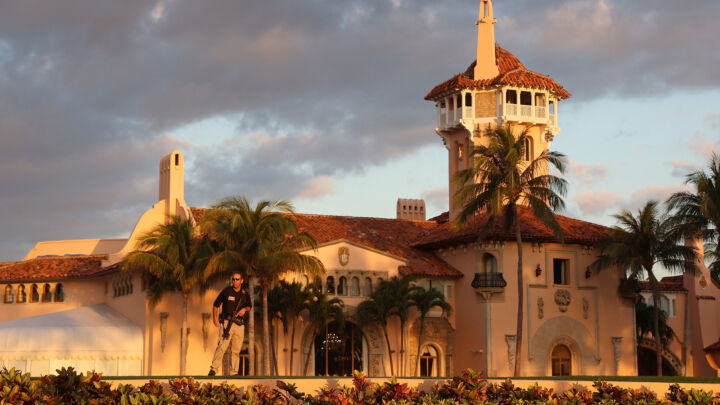Germany is being terrorised
Thirty-five years on from reunification, German public life is under constant attack.

Want unlimited, ad-free access? Become a spiked supporter.
As Germany commemorates the 35th anniversary of reunification, the contrast with 1990 could not be more stark. Back then, jubilant crowds gathered spontaneously at Brandenburg Gate and atop the crumbling Berlin Wall. Last week’s celebrations still drew many people, but the atmosphere was tainted by fear. In Germany today, one question looms over every public gathering: will we be safe?
Public life itself has grown increasingly fraught in Germany. There is a palpable nervousness before any major event. No chances are being taken. Last week, Munich’s iconic Oktoberfest was delayed after reports of a bomb threat. Fortunately, it turned out to be a hoax. But the police had good reason for caution.
Over the past year or so, Germany has endured a series of devastating attacks, most of them carried out by Islamists. In August 2024, a Syrian asylum seeker killed three people at a festival in Solingen, North-Rhine Westphalia celebrating the city’s 650th anniversary. Then, in December, an SUV ploughed into a Christmas market in Magdeburg, Saxony-Anhalt, killing six people and leaving more than 300 injured. In February this year, an Afghan asylum seeker drove into a trade-union demonstration in Munich, killing a mother and her young daughter, and injuring more than 40 others.
These attacks have had an insidious effect. Not only have they claimed innocent lives, and left survivors, first responders and families traumatised. They also risk turning Germany’s traditional events – from Christmas markets to beer festivals – into a thing of the past or a shadow of their former selves.
The list of cancelled events this year reads like an obituary for German public culture: the spring fair in Lage, flea markets in Rheinfelden, the cherry blossom festival in Marburg, and countless others. Security requirements are so restrictive and expensive that many organisers have simply given up.
Fair operators – whose livelihoods depend on public events – have spoken of an existential crisis. Even Oktoberfest, with its billion-euro turnover, was almost cancelled outright.
The Oktoberfest threat had credibility because a confession letter appeared on Indymedia, a publishing network for activist journalists. What’s more, just three weeks earlier, a far-left group in Berlin attacked power lines, causing the worst blackouts since the Second World War. Around 50,000 households lost power, some for more than two days. Commuters were stranded in trains and trams. Care patients requiring oxygen needed to be evacuated. Schools were shut down. Emergency lines went dead. Public life was crippled. Though the action was purportedly protesting against capitalism, militarism and (predictably) Israel, it was really an assault on ordinary German citizens – and a demonstration that terrorism is not the sole domain of Islamists.
Yet the threat of terrorism, while most dramatic, represents only one part of the attack on public life. The state’s response has made the situation worse. Public smoking bans, drinking restrictions and sweeping public-order laws have all contributed to the transformation of the public sphere into a controlled, regulated space. Even Oktoberfest has imposed a smoking ban.
These attacks on public life strike at society’s core. The public realm is where politics and culture meet. It’s where community is forged and history is sustained. With every event cancelled, people’s sense of belonging and connection is diminished.
This year’s reunification celebrations went ahead, though under heavy surveillance. Even when such events go ahead without a hitch, there is none of the joyful spontaneity of the past.
Safety matters. No one disputes this. But at some point, we must ask ourselves whether this heavy-handed response from the government is effectively letting the attackers win. We should not change our way of life, or lose any of our culture and history.
Thirty-five years ago, Germans celebrated winning back their autonomy and freedom by flooding into streets and squares. Today, as we commemorate that victory, we face a different challenge: reclaiming public space from the combined threats of terrorism and state overreach.
The public must fight for its freedom – not just from terrorist violence, but also from the fearful, controlled society we risk becoming in response to it.
Sabine Beppler-Spahl is spiked’s Germany correspondent.
You’ve hit your monthly free article limit.
Support spiked and get unlimited access.
Support spiked and get unlimited access
spiked is funded by readers like you. Only 0.1% of regular readers currently support us. If just 1% did, we could grow our team and step up the fight for free speech and democracy.
Become a spiked supporter and enjoy unlimited, ad-free access, bonus content and exclusive events – while helping to keep independent journalism alive.
Monthly support makes the biggest difference. Thank you.









Comments
Want to join the conversation?
Only spiked supporters and patrons, who donate regularly to us, can comment on our articles.